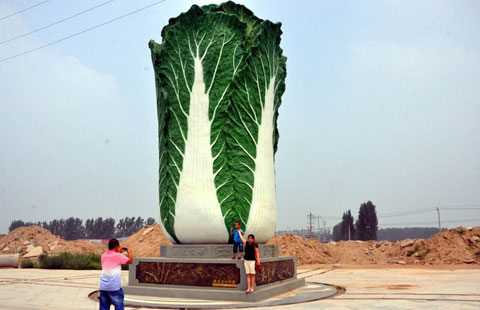Vision for hukou reform
Updated: 2014-07-31 07:33
(China Daily)
|
|||||||||||
The publication of a State Council document on reform of China's household registration system, or hukou, on Wednesday marks the beginning of a phase, in which the long discussed vision of a fairer system will gradually materialize.
In this vision, nominally there will be no rural hukou and urban hukou, and both rural and urban dwellers will be registered as residents.
Of course, this reform also intends to turn 100 million rural residents into urban dwellers by the year 2020. At the same time, it is also meant to make it possible for those villagers-turned-workers who have long worked and stayed in cities to gradually settle down as permanent residents in the cities where they work and enjoy the same social welfare as their urban counterparts.
But the real gap in terms of social welfare between the two will take much longer to bridge.
Despite the fact that a hukou is not as indispensable to a person's work and life as it used to be in the 1970s when everything was rationed, it is still unrealistic to abolish them at present.
As matter a fact, they still serve as a safety valve in prohibiting the populations in Beijing, Shanghai and Guangzhou from growing too quickly.
That explains why differentiated policies will be adopted for cities at different levels in this reform.
It is definitely right to set no threshold for rural residents to settle in towns and small cities, which will hopefully accommodate the majority of the 100 million rural villagers to be transferred in the five years to come.
Nevertheless, a lot more needs to be done than just providing them with a place to stay to make this urbanization process a success.
They will need a job to provide for themselves, public utilities will have to be provided as well, and so will social welfare and security. To put it in a nutshell, whatever is indispensable for the maintenance of a normal urban life will have to be there.
It will be necessary for China to shift at least part of its development focus from the large cities to smaller ones and even to towns. This will not only ease the increasingly heavy pressure on big cities in terms of both population and resources, but also help create new industries and businesses in small cities and towns.
In this way, the unbalanced economic and social development will be reasonably adjusted. Hukou reform should facilitate this historical mission.
Related Stories
Xi urged hukou reform in 2001 PhD paper 2014-07-31 07:03
Reforming hukou will unify rights of migrants 2014-07-31 02:10
Cities eye 'house-for-hukou' to boost property market 2014-06-22 14:47
Today's Top News
China's 'tigers' no longer burning bright
US, Europe slap sanctions on Russia
Malaysia Airlines faces fight for survival
Microsoft probed for monopoly
Chinese FM urges to facilitate MH17 probe
US to send new ambassador to Russia
Britain announces visa reform package in China
US, EU to slap sanctions on Russia
Hot Topics
Lunar probe , China growth forecasts, Emission rules get tougher, China seen through 'colored lens', International board,
Editor's Picks

|

|

|

|

|

|





